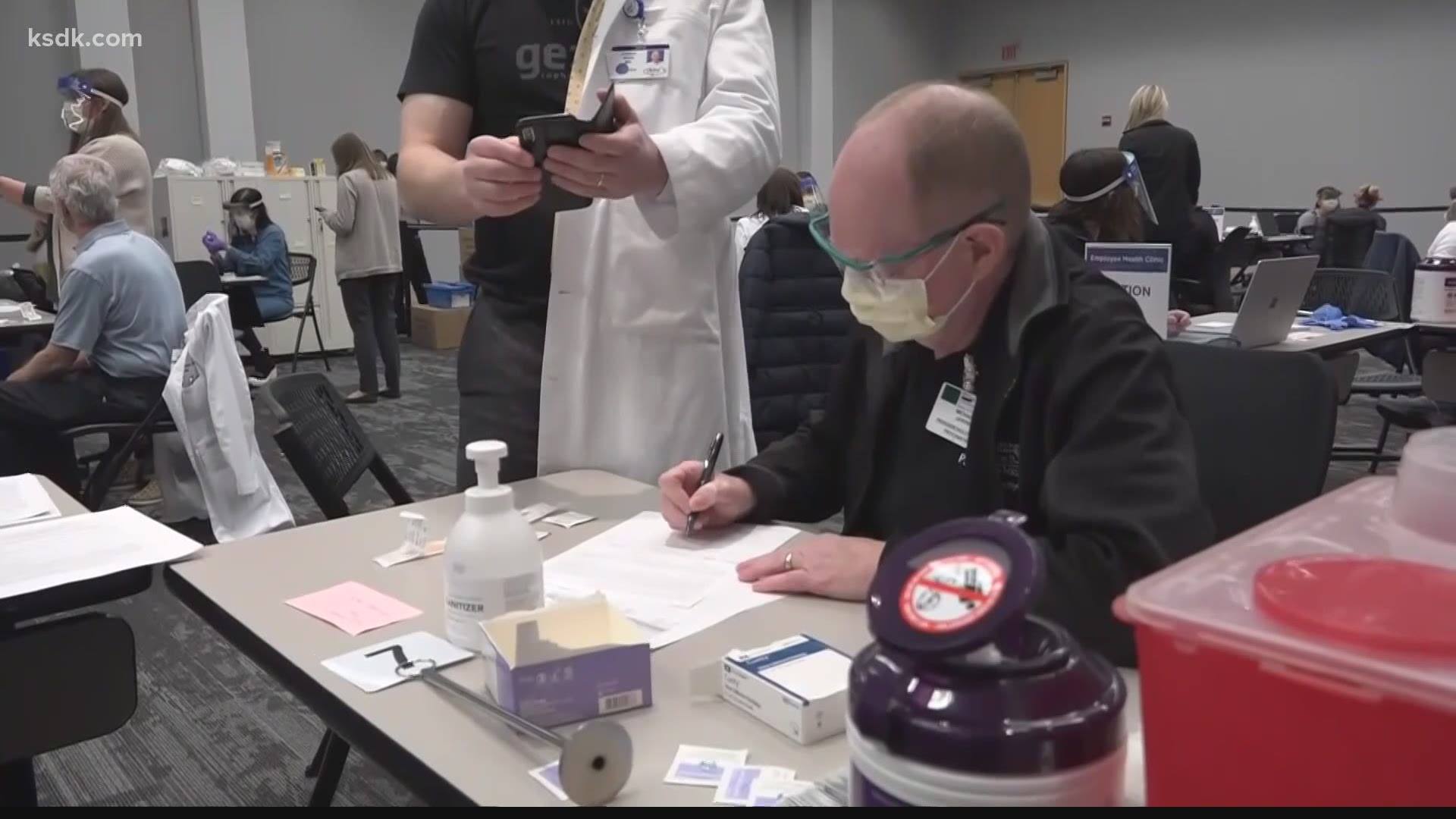ST. CLAIR COUNTY, Ill. — Seniors in St. Clair County will be offered free public transportation to some COVID-19 vaccination appointments beginning next week.
The St. Clair County Transit District announced the service Friday, which applies to seniors 75 and older who have a confirmed vaccination appointment through the county health department and are traveling to the Belle-Clair Fairgrounds & Expo Center for their vaccinations.
Those who qualify can take the MetroBus or MetroLink to the Belleville Transit Center, where the SCCTD Express Shuttle Bus Service will take them to the fairgrounds on the day of their scheduled appointment. The service begins Monday, Feb. 1 and will be available every Monday through Saturday from 8 a.m. to 8 p.m.
Masks must be worn on both Metro Transit and St. Clair County Transit vehicles.
Four MetroBus and MetroLink routes provide direct access to the Belleville Transit Center:
- 1: Main Street-State Street
- 15: Belleville-Shiloh-O’Fallon
- 16: St. Clair Square
- 17: Carlyle Plaza-17th Street
“Our goal in providing this free service is simple,” said SCCTD Board of Trustees Chair Herb Simmons in a news release. “We want to help increase public access to these vaccinations by providing a safe, efficient, convenient and free-of-charge ride to those in our community. Our hope is to continue to provide this service as additional subsets of the population are able to receive the vaccinations.”
County residents can fill out the COVIC-19 Vaccine Notification Sign Up form on the health department's website and will be added to a list to receive updates and notifications regarding the vaccine.
The health department advised people who are 65 years old and older to check the website every Friday afternoon for vaccination appointments. Updates are also posted on the health department's Facebook page.
St. Clair health officials are strongly encouraging those without an email or regular internet access to work with a relative or close friend to receive notifications on their behalf to go through the process.
The service is funded through the Coronavirus Aid, Relief, and Economic Security (CARES) Act.


